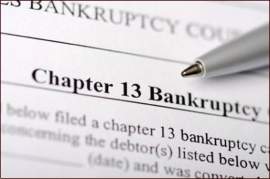
Facts to Note About Judgments in Adversary Proceedings

Usually, adversary proceedings in bankruptcy litigation are the result of some misdeed on the part of one or more parties in a financial arrangement. This is to say that most challenges of rights and motions are brought about after a supposed criminal act occurs. Concerning the doctrine of declaratory judgment, meanwhile, this avenue is primarily sought as a preemptive measure, thus happening before any major violations of bankruptcy rules/Federal law occur.
It should be noted that judgments are not simply manifestations of bankruptcy litigation. As stated, a declaratory judgment usually comes to be before any infractions of statutes arise. Whereas some requests for adversary bankruptcy litigation are primarily sought by the creditor (e.g. objections to a plan confirmation when evidence of fraud is had) or the debtor (violation of automatic stay), judgments can be requested by creditors and debtors alike. Specifically, a declaratory judgment is a ruling rendered by a bankruptcy court judge.
While a declaratory judgment may be had prior to other events of the case, within the scope of bankruptcy litigation it certainly will not precede the decision of a debtor not to pay outstanding debts, nor will it precede some general legal dispute related to the status of these debts.
Most importantly, a declaratory judgment is not an actionable order of the court. Thus, for example, a creditor may use this avenue to serve notice to the debtor that a preexisiting debt or other missed payment is required by law. The formal rendering of this decision may spur a reaction in the debtor to pay a debt in full or negotiate with the creditor to find a more amicable solution.
Seeing as declaratory judgments are not actionable decisions, it may seem as if their purpose is somewhat moot. Nonetheless, a declaratory judgment does not necessarily have to be brought about at the onset of the trial. Additionally, paired with court-authorized relief measures, it may not be a "toothless" exercise after all. For example, depending on the conduct of creditors, debtors may look to bankruptcy litigation to sue creditors for harassment and similar charges, and in fact, receive restitution for their damages.



















